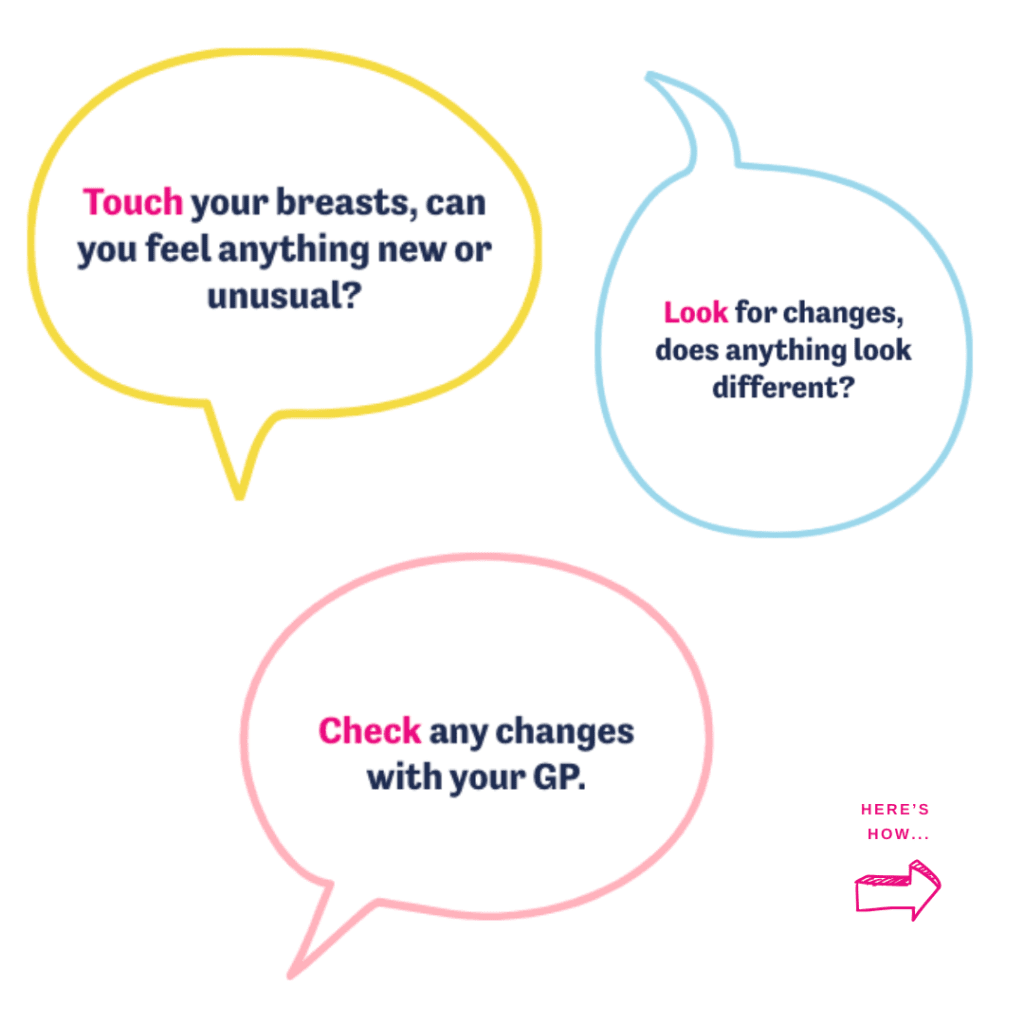One of the simplest — yet most powerful — actions you can take for your health is to regularly check your breasts or chest. By doing so, you become familiar with what’s normal for your body, helping you spot any changes that might need medical attention.
The NHS recommends performing a self-check around once a month. Here’s how you can do it safely and effectively:
What to Look For
When checking your breasts or chest, here are some changes to keep an eye out for:
- A lump or swelling in your breast, chest, or underarm
- Changes to the skin — dimpling (like orange peel), redness, or unusual texture
- A change in size or shape of one or both breasts
- Any unusual nipple changes — inversion, rash, or discharge (that’s not due to pregnancy or breastfeeding)
- Sores or skin ulcers on the breast or chest area
It’s important to remember that bodies vary — differences between your left and right side are sometimes normal. The key is noticing what’s unusual for you.
How to Check Your Breasts or Chest
Here’s a step-by-step approach:
- Look in a mirror
- With arms relaxed at your sides
- Then with arms raised
- Look for changes in shape, contour, or skin surface
- Feel your breasts / chest
- Use the pads of your fingertips
- Move in circular motions, from the outer edge inward
- Feel from your collarbone to under your armpit
- Use both light and firmer pressure
- Don’t forget to feel through and around the nipples
- Choose a comfortable position
- Standing (often easier in the shower, when skin is slippery)
- Or lying down, placing a pillow under your shoulder to flatten the chest
If you find anything unusual or persistent — lumps, changes, pain — talk to your GP without delay. These symptoms are common and often not cancerous, but getting checked early is essential.
Why Self Checks Matter
- Detecting changes early can lead to better treatment outcomes
- It helps you become familiar with your body’s “normal” so changes stand out
- Paired with formal screening programmes, self-checks form a strong defence
At ABC Jersey, we believe in giving Islanders the tools, knowledge, and community support to take control of their health. Use this guide, share it with those you care about, and remember — checking yourself is a simple act of self‑care that could save a life.







